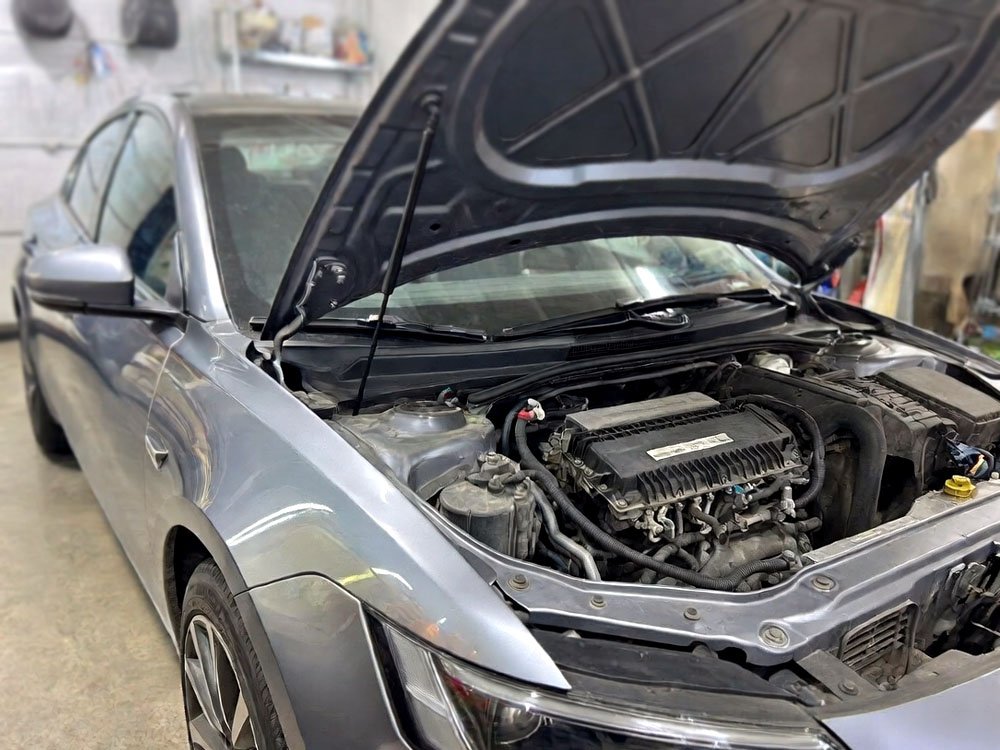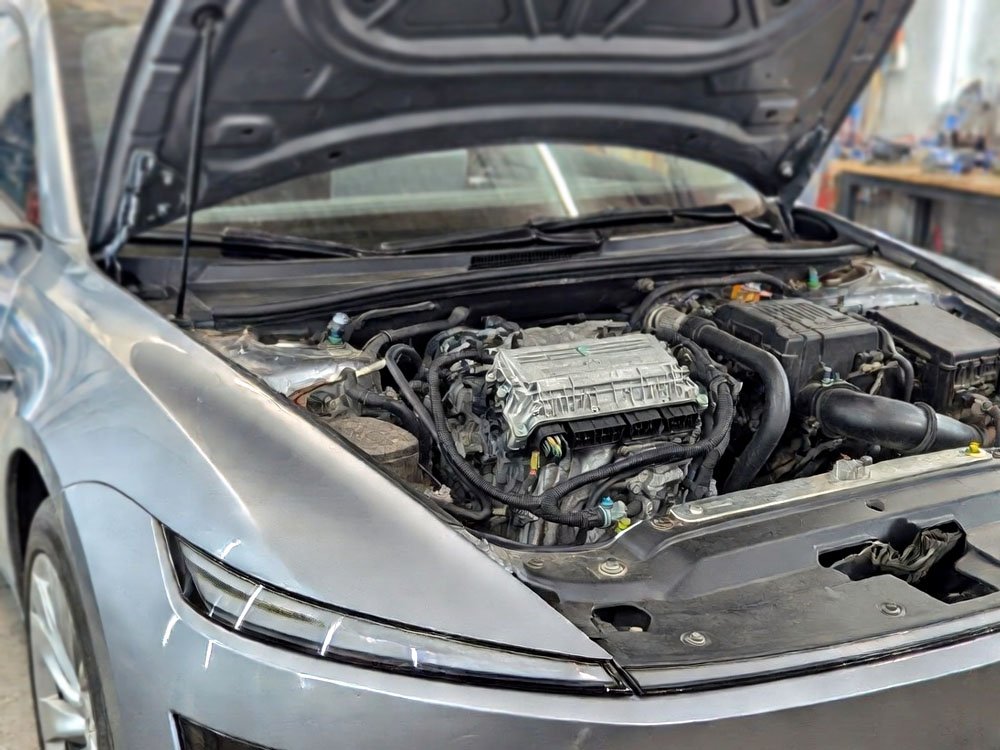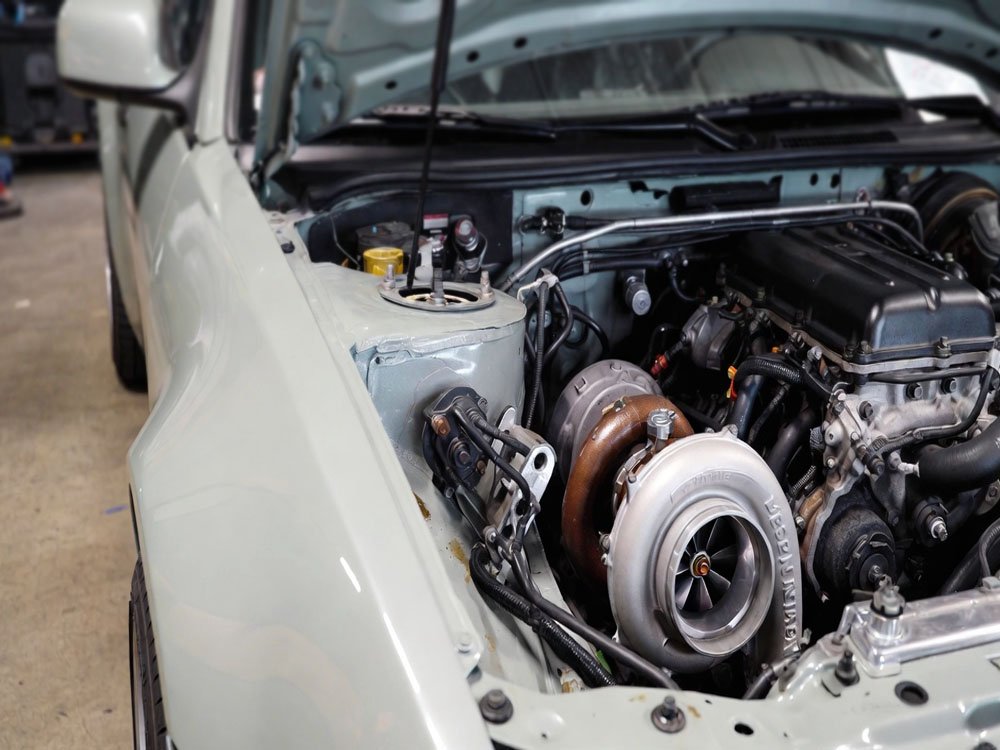If your car won’t start but the radio and lights work, the most common causes and fixes are a dead battery or a faulty starter motor. Having a car that won’t start can be frustrating and inconvenient.
You’re ready to hit the road, but your car doesn’t cooperate. One of the most common scenarios is when you turn the ignition, and nothing happens. However, you may notice that the radio and lights are still functioning correctly. This situation usually indicates an issue with the battery or the starter motor.
While there may be other causes, a dead battery or a faulty starter motor are often the culprits. We will explore these potential culprits and provide some possible fixes to get your car back on the road.

Credit: www.rac.co.uk
Common Reasons For A Car Not Starting
There are several common reasons why a car won’t start but the radio and lights are still working. Issues with the starter motor, fuel system, ignition switch, or battery can all contribute to the problem. Consulting a professional mechanic can help identify and fix these issues.
Dead Battery
If your car won’t start but the radio and lights work, one of the most common causes could be a dead battery.
- Make sure the battery terminals are clean and tightly connected to the cables.
- Inspect the battery for any signs of damage or leaks.
- Use a voltmeter to check the voltage of the battery. A healthy battery should read around 12.6 volts.
- If the battery is dead, jump-start the car using jumper cables and a booster vehicle with a working battery.
If the car starts after jump-starting, consider replacing the battery as it may no longer hold a charge effectively.
Faulty Starter Motor
Another common reason why your car won’t start even if the radio and lights are working is a faulty starter motor.
- Listen for a clicking sound coming from the engine when you turn the key. This could indicate a problem with the starter motor.
- If the starter motor is faulty, it may need to be replaced. However, before doing so, check the connections to ensure they are secure.
- If you are comfortable with automotive repairs, you can also try tapping the starter motor gently with a hammer. Sometimes, this can temporarily fix the issue.
If the car still won’t start after these steps, it is recommended to consult a mechanic for further diagnosis and repair.
Fuel Pump Failure
One more potential cause for a car not starting while the radio and lights are functioning is fuel pump failure.
- Check the fuel pump fuse and relay to ensure they are not blown or faulty. These are usually located in the engine compartment or fuse box.
- If the fuse and relay are fine, it’s possible that the fuel pump itself is the problem. Verify if you can hear the humming sound of the fuel pump when you turn the key to the “on” position.
- If there is no sound, it may indicate a failed fuel pump which should be replaced. However, consult a professional mechanic for an accurate diagnosis and expert guidance.
Remember, these are just a few common reasons why your car won’t start, despite the radio and lights working. It is always recommended to consult a qualified mechanic to accurately diagnose and fix the issue.
Troubleshooting Steps To Identify The Issue
When your car won’t start but the radio and lights work, it can be frustrating and confusing. However, with some troubleshooting steps, you can identify the issue and potentially fix it yourself. Here are some steps to help you troubleshoot the problem.
Check The Battery Connections
Start by checking the battery connections to ensure they are tight and free of corrosion. Loose or corroded connections can prevent the battery from delivering power to the starter, causing the car not to start. Use a wrench to tighten any loose connections and a wire brush to clean off any corrosion.
Test The Battery Voltage
If the connections are secure, test the battery voltage. A volt meter can be used to check if the battery is providing enough voltage to start the car. A healthy battery should have a voltage of around 12.6 volts. If the voltage is significantly lower, it may indicate a weak or failing battery that needs to be replaced.
Inspect The Starter Motor
The starter motor is responsible for turning the engine over and starting the car. Check for any unusual sounds when you turn the key in the ignition, as this can indicate a problem with the starter motor. If you hear a clicking sound or the engine doesn’t turn over, the starter motor may be faulty and need to be replaced.
Check Fuel Pump Operation
In some cases, a faulty fuel pump can prevent the car from starting, even if the battery, lights, and radio are working. You can check the operation of the fuel pump by turning the ignition to the “on” position and listening for a humming sound from the rear of the car. If you don’t hear a sound, it may indicate a problem with the fuel pump that requires attention.
Fixes For A Car Not Starting
Experiencing issues with your car not starting? If the radio and lights are working but the car won’t start, it could be due to a faulty starter, battery, or ignition switch. Check the connections, battery voltage, and the starter motor for any potential issues.
If needed, consult a professional mechanic for a thorough diagnosis and resolution.
If your car won’t start but the radio and lights are working, it can be frustrating and worrying. However, there are several fixes you can try to get your car back on the road. In this article, we will explore three common causes of a car not starting and the corresponding fixes. By following these steps, you can troubleshoot the issue and potentially save yourself a trip to the mechanic.
Jump-start The Car
If your car won’t start, a common fix is to jump-start the battery. This can be done using jumper cables and another vehicle with a functioning battery. Follow these steps:
- Park the functional car close to your vehicle, ensuring both cars are turned off.
- Attach one end of the red cable to the positive terminal of the dead battery.
- Connect the other end of the red cable to the positive terminal of the working battery.
- Attach one end of the black cable to the negative terminal of the working battery.
- Connect the other end of the black cable to a metal component of the dead car, away from the battery.
- Start the engine of the working car and let it idle for a few minutes.
- Attempt to start your car. If successful, let it run for a while to recharge the battery.
Replace The Battery
If jump-starting the car doesn’t work, the issue may lie with a faulty battery. Follow these steps to replace the battery:
- Locate the battery, usually found in the engine bay or trunk of your car.
- Disconnect the negative terminal first, followed by the positive terminal, using a wrench.
- Remove any brackets or clamps securing the battery in place.
- Take out the old battery and place the new one in the same position.
- Secure the battery with the brackets or clamps.
- Connect the positive terminal first, followed by the negative terminal, ensuring they are tightly secured.
Repair Or Replace The Starter Motor
If the car still won’t start after replacing the battery, the starter motor may be the culprit. Here are the steps to repair or replace the starter motor:
- Locate the starter motor, usually found near the engine block.
- Disconnect the negative terminal of the battery to prevent any electrical shocks.
- Remove any necessary components obstructing access to the starter motor.
- Disconnect the wiring connected to the starter motor.
- Remove the bolts securing the starter motor in place.
- If repairing, inspect the motor for any visible damage or wear and replace any faulty components.
- If replacing, install the new starter motor and tighten the bolts.
- Reconnect the wiring and reattach any components previously removed.
- Finally, reconnect the negative terminal of the battery.
By following these fixes, you can troubleshoot the common causes of a car not starting when the radio and lights are working. However, if none of these solutions solve the issue, it’s recommended to seek professional assistance to diagnose and address the problem efficiently.
Other Potential Causes Of The Problem
If your car won’t start but the radio and lights are working fine, there may be other underlying causes that need to be addressed. Don’t worry, we’re here to help you troubleshoot the problem. Below are three potential culprits that could be the reason behind your car’s starting issue.
Ignition Switch Failure
If the ignition switch in your car fails, it can prevent power from getting to the starter motor, causing your car not to start. This can happen due to wear and tear over time or electrical issues. Replacing the ignition switch is usually the solution to this problem. It is recommended to seek professional help to diagnose the issue accurately and install a new ignition switch if needed.
Faulty Fuel Injectors
Another potential cause of your car’s starting problem could be faulty fuel injectors. If the fuel injectors are not delivering the correct amount of fuel to the engine, it can lead to a lack of fuel combustion and prevent your car from starting. Cleaning or replacing the faulty fuel injectors is necessary for resolving this issue. Contact a trusted mechanic to inspect the fuel injectors and perform the required maintenance.
Issues With The Engine Control Module
The engine control module (ECM) is responsible for managing various engine functions, including starting the car. If the ECM malfunctions or experiences electrical issues, it can disrupt the starting process. In some cases, a simple reset or reprogramming of the ECM might be sufficient to resolve the problem. However, if the ECM is damaged, it may need to be replaced. Consult with an experienced technician who can diagnose the issue and offer the appropriate solution.
Remember, troubleshooting car problems can be complex, and it’s always advisable to consult with a professional mechanic who can accurately diagnose and fix the issue. Addressing these potential causes will help you get your car back on the road in no time.
Preventive Measures To Avoid Car Starting Issues
Regularly check the batteryIt is important to regularly check the condition of your car’s battery to ensure it is in good working condition. Perform a visual inspection to check for any corrosion or leaks and test the battery’s voltage regularly to monitor its health.
Maintain clean battery connectionsMaintain clean and secure battery connections by cleaning the terminals and cable connections to prevent corrosion buildup. Use a mixture of baking soda and water to clean the terminals, and ensure that they are tightly secured to the battery posts.
Perform routine maintenance on the starter motorPerforming routine maintenance on the starter motor is crucial to prevent potential starting issues. Ensure that the starter motor is free from dirt and debris, and use a volt meter to test its operation periodically.
Keep a check on fuel pump healthRegularly monitor the health of the fuel pump to prevent any issues with starting your car. Check for any strange noises coming from the fuel pump and ensure that it is delivering the proper amount of fuel to the engine.
:max_bytes(150000):strip_icc()/car-radio-wont-turn-on-534706-4768665eab614306844478b39ec4a5ac.png)
Credit: www.lifewire.com
When To Seek Professional Help
If you’ve been experiencing persistent starting issues with your car, despite your best efforts in troubleshooting, it may be time to consider seeking professional help. While there are many potential causes for a car that won’t start but has working radio and lights, some issues may require a professional touch to diagnose and repair.
Persistent Starting Issues Despite Troubleshooting
If you’ve already followed all the basic troubleshooting steps, such as checking the battery, starter, and ignition system, and your car still won’t start, it’s a good indication that the problem may be beyond your expertise. Persistent starting issues can be caused by more complex problems that require specialized knowledge and equipment to diagnose and fix.
When you find yourself in this situation, it’s advisable to consult a certified mechanic or technician who can use their expertise to identify the root cause of the problem. They have access to advanced diagnostic tools and can perform in-depth inspections to pinpoint the issue that may be eluding you.
Electrical Problems Beyond Basic Repairs
If your car’s radio and lights are working, it suggests that the electrical system is functioning correctly. However, there could be underlying electrical problems that go beyond the scope of your basic repairs. These issues can be more intricate and require professional expertise to resolve.
Electrical problems can arise from various sources, such as faulty wiring, a malfunctioning ignition switch, or a malfunction in the engine control module (ECM). It’s important to note that attempting to fix complex electrical issues without proper knowledge and tools can potentially worsen the problem or even cause damage to other parts of your vehicle.
By seeking professional help, you ensure that your car’s electrical problems are accurately diagnosed and efficiently repaired. Certified technicians possess the knowledge and experience to handle intricate electrical systems, minimizing the risk of further damage.
When it comes to your car’s starting issues, it’s crucial to recognize when it’s time to seek professional assistance. Persistent starting problems that persist despite troubleshooting efforts and electrical issues beyond your basic repairs warrant the expertise of a trained mechanic or technician. Don’t hesitate to reach out to a professional to get your car back on the road and running smoothly once again.
:max_bytes(150000):strip_icc()/car-1564300_1920-5bb4f5a9c9e77c002642d5c3.jpg)
Credit: www.lifewire.com
Conclusion
When faced with a situation where your car won’t start but the radio and lights work, it’s crucial to consider potential causes such as a weak battery or faulty ignition switch. By following the troubleshooting tips and seeking professional assistance if needed, you can effectively address the issue and restore functionality to your vehicle.


